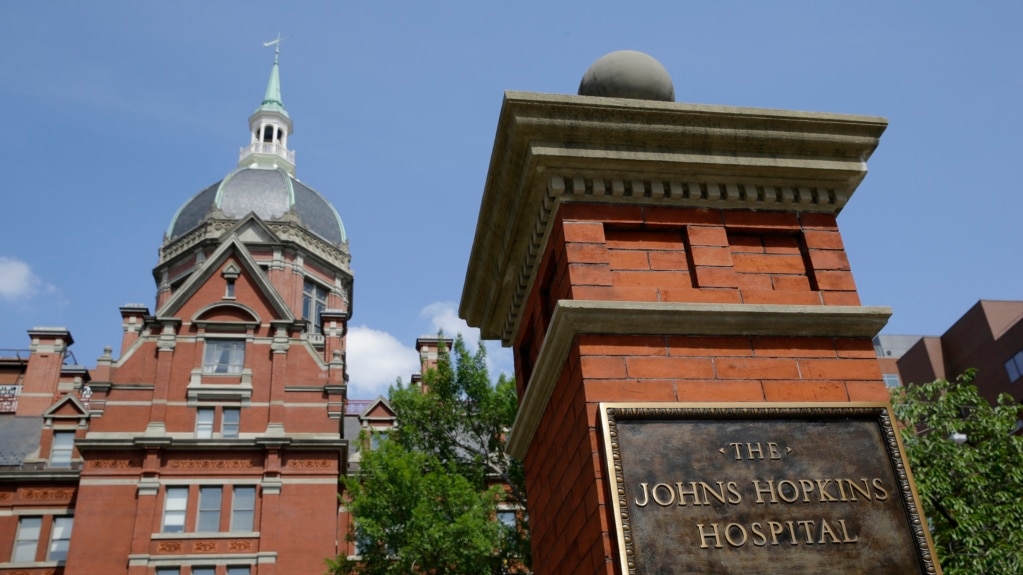Most medical students at Johns Hopkins University in Baltimore, Maryland will no longer pay for classes thanks to a $1 billion gift from Bloomberg Philanthropies.
Starting in the autumn, the gift will cover costs for classes, or tuition, for medical students who come from families earning less than $300,000. Living expenses and other costs will be covered for students from families who earn up to $175,000.
Bloomberg Philanthropies said that almost two-thirds of all students currently seeking a doctor of medicine degree from Johns Hopkins meet the requirements for financial aid.
And 45 percent of the current class will also receive living expenses.
The school estimates that graduates’ average total loans will decrease from $104,000 currently to $60,279 by 2029.
The gift will also increase financial aid for students at the university’s schools of nursing, public health, and other graduate schools.
Michael Bloomberg is the founder of Bloomberg Philanthropies and Bloomberg LP. He said in a statement recently, “By reducing the financial barriers to these essential fields, we can free more students to pursue careers they’re passionate about – and enable them to serve more of the families and communities who need them the most.”
Bloomberg, the former New York City mayor, received a degree in electrical engineering from Johns Hopkins University in 1964.
Ron Daniels, the president of Johns Hopkins University, said the gift will go to the university’s endowment and all of the money will go directly to students.
Daniels said that Michael Bloomberg had been moved by the difficulties that healthcare professionals faced during the pandemic “and the heroic efforts” they made to help American citizens.
Daniels added about Bloomberg, “I think he simply wanted to recognize the importance of these fields and provide this support to ensure that the best and brightest could attend medical school and the school of nursing and public health.”
Bloomberg Philanthropies previously gave $1.8 billion to Johns Hopkins in 2018. The goal was to make sure that undergraduate students could go to the school regardless of their family’s finances.
Series of big gifts
Johns Hopkins will be the latest medical school to offer free tuition to most or all of their medical students.
In February, Ruth Gottesman, a former professor at the Albert Einstein College of Medicine and the widow of a Wall Street investor, announced that she was giving $1 billion to the New York City school. The gift meant that four-year students immediately received free tuition and all other students will be offered free tuition in the autumn.
In 2018, Kenneth and Elaine Langone gave $100 million to the NYU Grossman School of Medicine to make tuition free for all current and future medical students. The couple gave a second gift of $200 million in 2023 to the NYU Grossman Long Island School of Medicine to guarantee free tuition for all medical students.
Kenneth Langone is a co-founder of Home Depot, a large home improvement company.
Other medical schools, like UCLA’s David Geffen School of Medicine, offer special awards known as merit-based scholarships. These awards were a result of some $146 million in gifts from David Geffen, a major figure in the recording industry. The Cleveland Clinic Lerner College of Medicine has also offered tuition-free education for medical students since 2008.
Candice Chen of the Milken Institute School of Public Health at George Washington University has researched the social missions of medical schools. Chen believes medical schools are not producing enough primary care, “mental health specialists as well as the doctors who will work in and serve in rural and underserved communities.”
Chen said she would have loved to see gifts, like those to John Hopkins, NYU and Albert Einstein, go to Meharry Medical College in Tennessee, for example. The school is a historically Black school that has produced many primary care doctors who work in communities that have shortages of care.
I’m John Russell.

